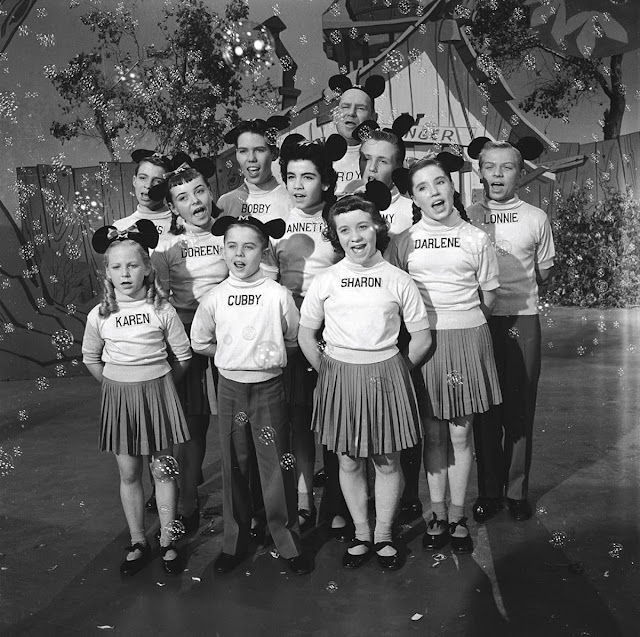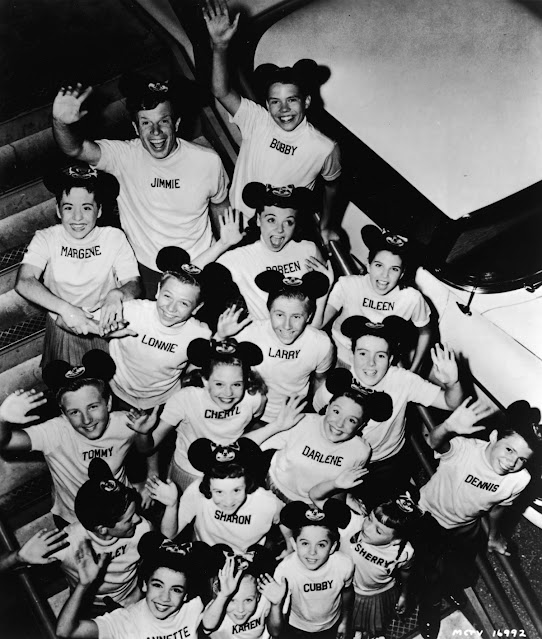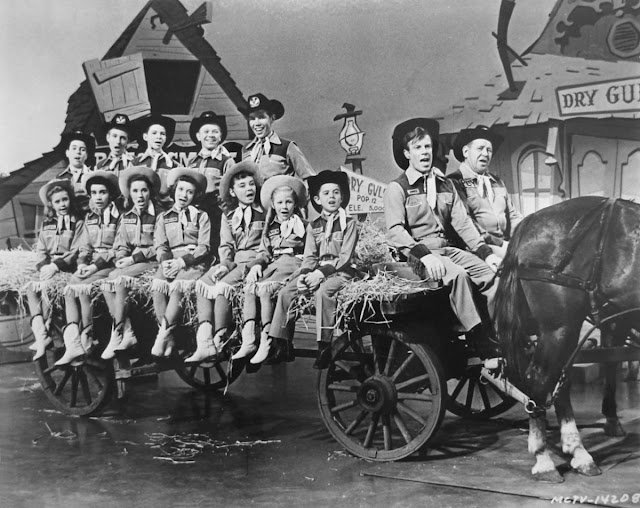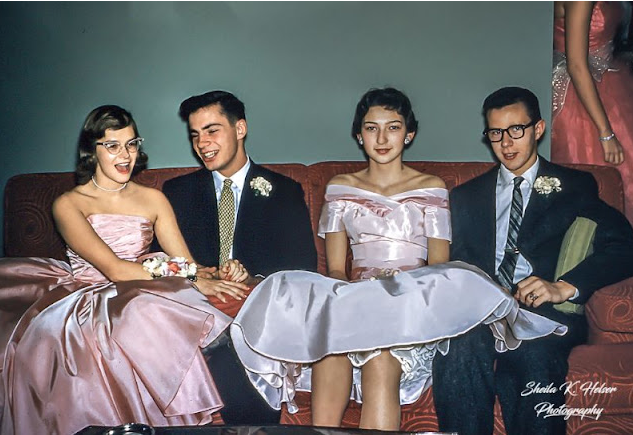The “Mouseketeers” were an assortment of variously gifted, mostly non-professional California kids selected by Walt Disney as the core around which the Mickey Mouse Club, Disney’s second network television venture (after Disneyland), was produced. The pervasively popular show quickly became one of the major crazes of the mid-1950s, and the “Merry Mouseketeers,” sporting black beanies topped with round mouse ears, became enduring icons of a newly affluent, post-war America.
The original show, begun in 1955, was syndicated from 1962 to 1965, again in 1972, and in an abridged format on the Disney Channel in 1983. Two up-dated (and very politically correct) versions appeared in 1977 and 1989, but it was the Cold War Mickey Mouse Club and its Mouseketeers that achieved true cultural immortality during its relatively brief but massively assimilated run in the 1950s. The show’s popularity was unprecedented in its time, and its nostalgic appeal and cultural impact continued to exert a fascination that was still evident 40 years later.
Disney’s Mickey Mouse Club premiered on ABC on October 3, 1955, and ran until September 25, 1959. The show was actually a recycling of the popular live Mouse Clubs that had flourished in movie theaters between 1929 and 1933. The TV manifestation proved equally successful with 1950s youngsters, although adults and critics were heard to voice some essentially unheeded reservations. Mickey Mouse Club was aired Monday through Friday between 5:00 and 6:00 p.m. and was divided into four ritualistic segments. After a daily animated lead-in from the Mouse himself, the first quarter presented newsreels on global subjects of interest to children, a series of safety/health films or a similarly instructive feature moderated by Jiminy Cricket (Disney’s personable insect character from the 1939 film Pinocchio).
The Mouseketeers themselves (all identified by first name only) were divided into two groups: the “Red Team” of the top ten most showcased performers and the larger although second-string “Blue Team.” Of the select “Reds” Annette Funicello achieved the most Club -era adulation and post-Mouse success. Funicello enjoyed a brief recording and screen career before retiring into domestic life. In 1987 she returned, with AIP co-star Frankie Avalon, in the film Back to the Beach, a sharp satire that made frequent references to their mutual pop culture histories. Of the boys, Bobby (Bobby Burgess) became a dancing fixture on the Lawrence Welk Show. The adult regulars on Mickey Mouse Club were Jimmie Dodd, who moderated and wrote many of the songs, and Roy Williams, a Disney artist who spoke on the show only through his caricatures and quick-sketch drawings.













